Kathryn (Kate) Koob’s Story
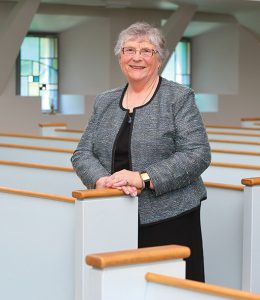
Kathryn (Kate) Koob is a lifelong Lutheran, dedicated person of faith, and longtime Wartburg Seminary supporter. The faith learned at home and in church shaped her choices and life’s path, eventually leading to a career in foreign service with a posting in Tehran, Iran in 1979 shortly after the Iranian Revolution had begun. Kate was one of the 52 American State Department staff members taken hostage at the U.S. Embassy. The Iranian Hostage Crisis lasted 444 days.
During the 14-month captivity, Kate cites faith as foundational to sustaining her: “I put into practice everything I learned at home, in Sunday school and confirmation, at college and Bible study: praying, remembering others in greater need than I was, learning how to forgive my enemies, hymn singing and relying on the promises of Scriptures. I pray in many ways and for many things. I pray for my family, friends, church and world. I know firsthand the power of prayer for others. During my time in Iran, I felt held up by the safety net of prayer that was being said for all of us during the time of our captivity.”
She continued in an interview with her alma mater, Wartburg College, published in Wartburg Magazine to describe the impact of God’s presence in her life in and beyond captivity: “We often face things over which we have no power, like an unexpected illness, death of a loved one, loss of a job, so many different things. And yet we have the grace of God to face those things with the support of friends and family. Even though I wasn’t talking with my friends and family, I knew that they were praying for me. You use those resources you have, and you deal with the unexpected in your life one day at a time, or 15 minutes at a time. Sometimes, it was just, ‘Dear Lord, get me through the next 15 minutes.”’
Since her return to the U.S., Kate continued her career in foreign service with assignments in Austria, Australia, and Germany through to her retirement. She continued a lifelong commitment to cultivating curiosity and deepening her faith and earned a master’s degree in Religion from the Lutheran School of Theology at Gettysburg (now United Lutheran Seminary) in retirement.
Kate published an account of her experience in Guest of the Revolution: The Triumphant Story of an American Held Hostage in Iran in 1982, speaks and has been interviewed by countless publications (including C-SPAN, AARP, Living Lutheran, and the Chicago Council on Global Affairs), received the Living Loehe Award from Wartburg Seminary in 1981, and donated several artifacts to the Wartburg College Archives to form the Kathryn Koob Collection.
We interviewed her to hear more of her story and how faith shaped her life beginning at home, throughout the Iranian Hostage Crisis, and in the time we find ourselves now—a much different kind of isolation, but the lessons from her time as a hostage continue to guide her.
How were you introduced to faith in your childhood? What practices and pieces of the Lutheran belief system became important to you and your formation?
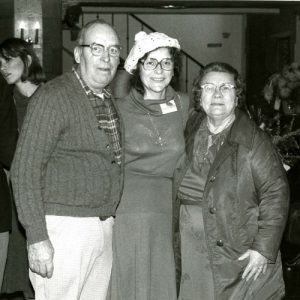 I grew up in a household of living faith. I was prayed for before I was born and one of the very first places I was taken as a newborn was to church to be baptized. I am sure one of the first words I was taught was to say “Amen.” Prayer was a constant in my life—asking a blessing before every meal and returning thanks at the end of the meal. Bedtime prayers were as much a part of the bedtime ritual as was the bedtime story. And that included asking God to bless family members by name. As the oldest of six, I was encouraged to help my little sisters say their prayers. It was a family affair. Faith was a part of life—home, school, and special events. Church came first, no questions asked. It was just the way things were!
I grew up in a household of living faith. I was prayed for before I was born and one of the very first places I was taken as a newborn was to church to be baptized. I am sure one of the first words I was taught was to say “Amen.” Prayer was a constant in my life—asking a blessing before every meal and returning thanks at the end of the meal. Bedtime prayers were as much a part of the bedtime ritual as was the bedtime story. And that included asking God to bless family members by name. As the oldest of six, I was encouraged to help my little sisters say their prayers. It was a family affair. Faith was a part of life—home, school, and special events. Church came first, no questions asked. It was just the way things were!
I wanted to teach speech and drama, but that would require a four-year degree that my family could not afford. I found a course at Wartburg College where I could get training to be a lay worker in the church. That appealed to me. I could continue to do the things I loved—teaching, working with older youth, etc. I opted for that and ended up with a job helping the development of new churches. I would work for a congregation for two or three months doing everything from door-to-door calling to teacher training to youth work and in a real emergency playing the piano for Sunday worship. I did this for two years, then went back to Wartburg to finish my degree in Secondary Education. After receiving my BA, I taught speech and drama and went back to school during the summer months, eventually earning a Master of Arts in Theater.
You shared with the Living Lutheran team that someone suggested you might enjoy the work of the cultural section of our embassies and ultimately became part of the U.S. Foreign Service. You were on assignment in Iran when you were taken hostage. We are in a time of extended isolation from places of worship, friends, family and much of what we held as basic or normal about our daily routines. Is there anything applicable now from what you learned or what sustained you while being held hostage in Iran?
I think it is important to establish a routine. For example, during the hostage crisis, I recognized I had been given a gift of time, so I decided to spend part of that gift to explore the contemplative life. It was something I had wondered about for a long time. I decided to study the Book of Psalms during this time, reading three a day, and thinking about how they addressed God. I love the Psalms because they express the whole gamut of human emotions.
 One other practice gave me a lot of help: I turned to a list I had created of people who were worse off than I was and spent time in prayer for them. I was a political prisoner, but not in my own country. I prayed for those people being held by their own governments. I prayed for parents dealing with the terminal illness of a child. I prayed for people without a place to live or who had to send their children to bed hungry at night! I was warm and had enough to eat. That helped put things into perspective. It did not stop me from asking God to deliver us and send us all home safely, but it reminded me that I could continue to do God’s work in prayer. It also reminded me of Romans 8:38–39 that promises nothing can separate us from God! God was with me.
One other practice gave me a lot of help: I turned to a list I had created of people who were worse off than I was and spent time in prayer for them. I was a political prisoner, but not in my own country. I prayed for those people being held by their own governments. I prayed for parents dealing with the terminal illness of a child. I prayed for people without a place to live or who had to send their children to bed hungry at night! I was warm and had enough to eat. That helped put things into perspective. It did not stop me from asking God to deliver us and send us all home safely, but it reminded me that I could continue to do God’s work in prayer. It also reminded me of Romans 8:38–39 that promises nothing can separate us from God! God was with me.
Is there anything emerging in this time—a creative moment, worship practice, way of learning or relating—that you hope continues beyond our current quarantine?
I have reveled in the wonderful ways I have been able to worship during this time. Virtual services, but in so many ways: my own parish, a former parish, and worldwide with former churches in Berlin, Vienna, Paris, and Wednesday virtual chapel with ELCA headquarters. I miss my Bible study group and will be glad to get back to face-to-face meetings, but in the meantime, there is a wonderful number of online worship opportunities, and I revel in the possibilities for joining this network of the faith family.
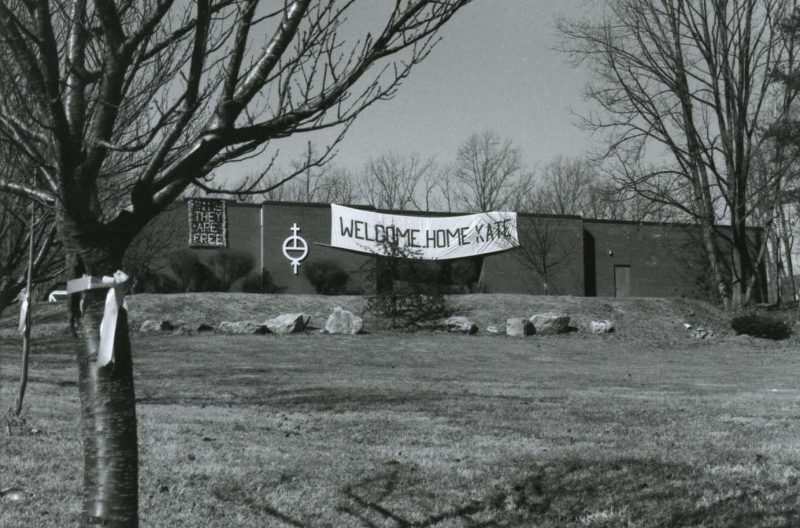
We (WTS) often use language of “preparing leaders for a changing church and world.” Many are feeling that everything changed almost overnight. What do you find important from your faith in times of rapid change like these?
My confirmation verse was Matthew 28:20: “Lo, I am with you to the end of the ages.” God is constant—but God’s creation is not. We are part of that creation and we are always in change—hopefully for a better, stronger relationship with God—and God’s creation. I heard an astronomer acknowledge that creation could very well be continuing in the deep reaches of space. The change of seasons in our world also teaches us about growing and being made new. It is exciting, humbling, and awesome. Sometimes changes are slow and sometimes they seem to come out of nowhere very suddenly. We must celebrate that.
What made you decide to return to school for a degree in religion?
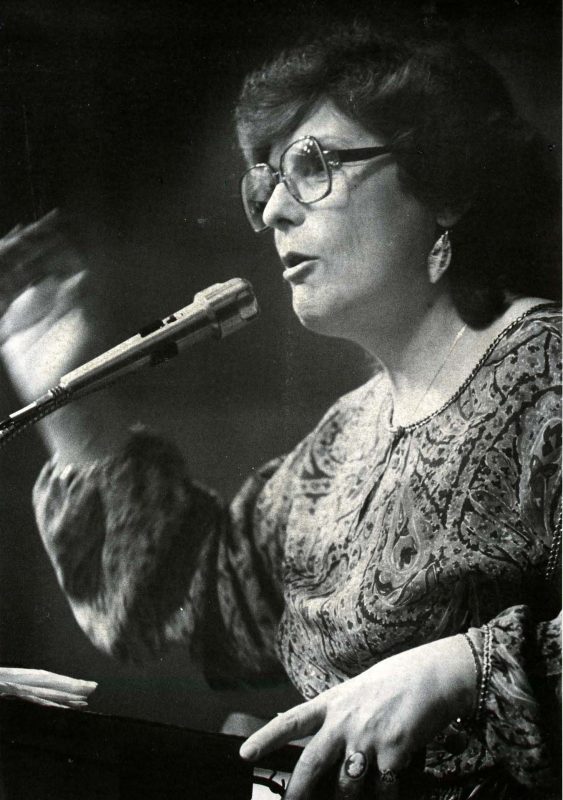 Following one of the talks I gave after coming home from Iran, someone asked me how much Tillich I had read. I had not studied Tillich at all, but that got me thinking and eventually I had an opportunity to audit a class in Tillich’s theology at the University of Vienna, in Vienna, Austria. That was super. I had discussed some of the questions I had pondered during my stay in Iran with my pastor, Rev. Ron Christian, and he said he suggested auditing a seminary course or two to get some of the answers I was seeking. I started with a class or two at the Gettysburg House of Studies in Washington, D.C. and I enjoyed them so much I ended up at the Lutheran Theological Seminary at Gettysburg (now United Lutheran Seminary). I loved it. It built on what I had been taught first of all in Sunday school, then confirmation, and then college.
Following one of the talks I gave after coming home from Iran, someone asked me how much Tillich I had read. I had not studied Tillich at all, but that got me thinking and eventually I had an opportunity to audit a class in Tillich’s theology at the University of Vienna, in Vienna, Austria. That was super. I had discussed some of the questions I had pondered during my stay in Iran with my pastor, Rev. Ron Christian, and he said he suggested auditing a seminary course or two to get some of the answers I was seeking. I started with a class or two at the Gettysburg House of Studies in Washington, D.C. and I enjoyed them so much I ended up at the Lutheran Theological Seminary at Gettysburg (now United Lutheran Seminary). I loved it. It built on what I had been taught first of all in Sunday school, then confirmation, and then college.
I also by that time had had the privilege of working on some national and international activities of the church, been able to visit historic sites related to my faith, and met some wonderful people who encouraged me. I am so grateful for the many people God sent my way—Dr. E. A. Schick (who taught at both Wartburg College and Seminary), Henri Nouwen, Miroslav Volf, and the writings of Catherine Marshall as well as a myriad of others who listened to my questions, engaged me in discussion, and continue to help me as I continue seeking. God’s riches are abundant.
How did you get connected to Wartburg Seminary and why do you feel it is a mission worth supporting?
Wartburg has always been “my” seminary, and I remember hearing about it when I was a little girl. Many of the pastors of my home congregation were graduates of WTS, and when I was at Wartburg College many of my classmates were “pre-theology” students and headed to Dubuque on graduation. The Lutheran church since the time of the Reformation has been a teaching church, and WTS trains people to teach. That alone would be enough, but this teaching school turns out pastors and church leaders who work with compassion for justice and equity for all—whether it is in our own backyard or in Namibia or assisting in the resettlement of refugees at the end of World War II and more recently. It is a living center of God’s relationship with God’ created image—humankind.
If you were to share a “nugget of wisdom” or piece of advice for WTS students/future ministry leaders, what would that be?
Listen! I’ve long admired the contemplative lifestyle, and in Iran I had a chance to explore that. It means listening to many voices, and always being extra quiet for that “still, small voice” that comes in the midst of the thundering noise of life. Continue seeking and above all, loving as you have been loved by our gracious God.
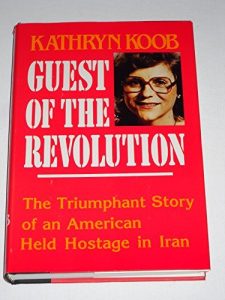

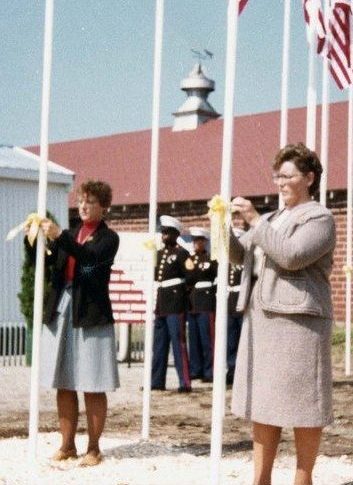
All images courtesy of the Kathryn Koob Collection at Wartburg College. Printed with permission. View the archives online at wartburg.edu/archives.